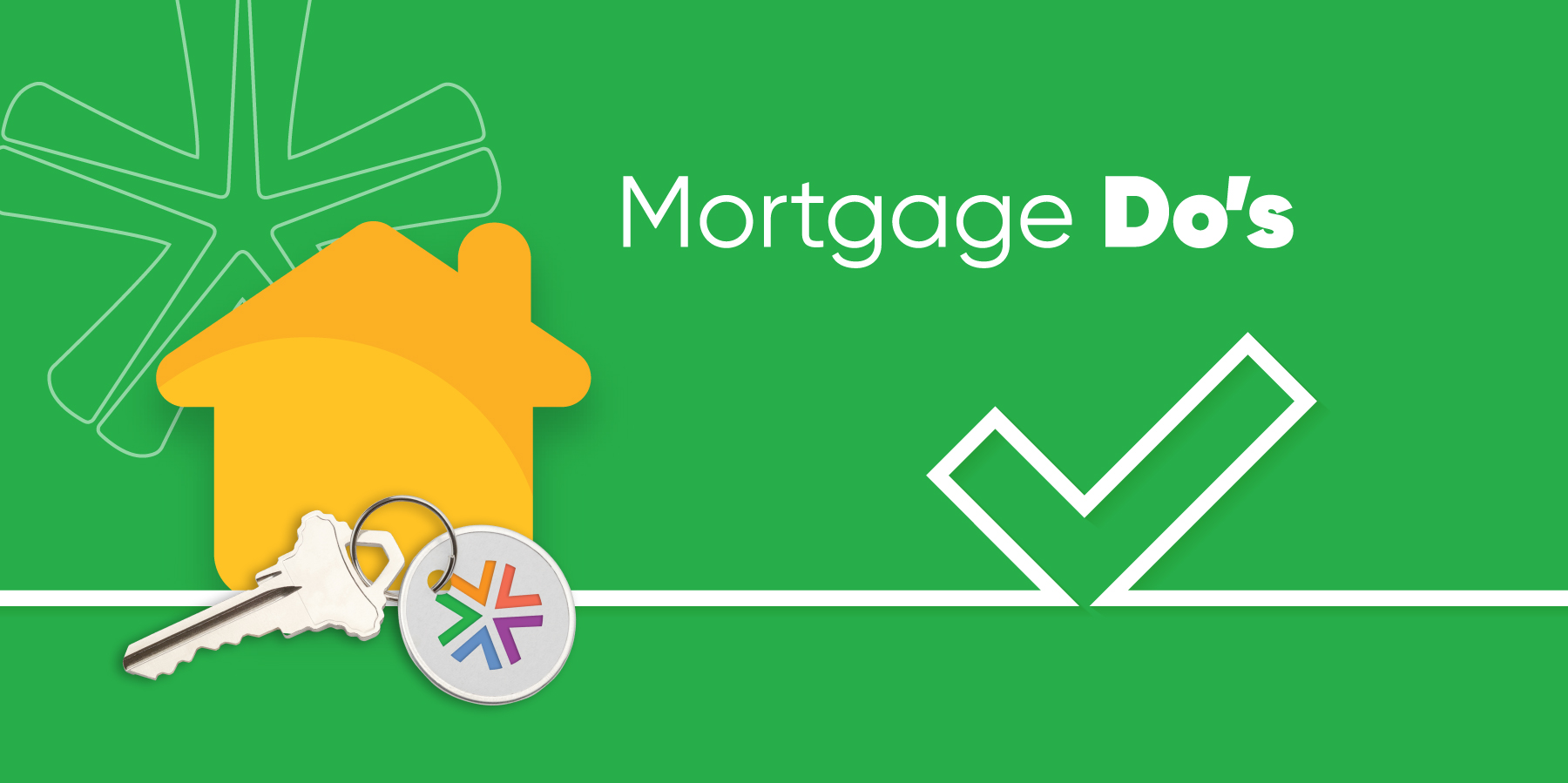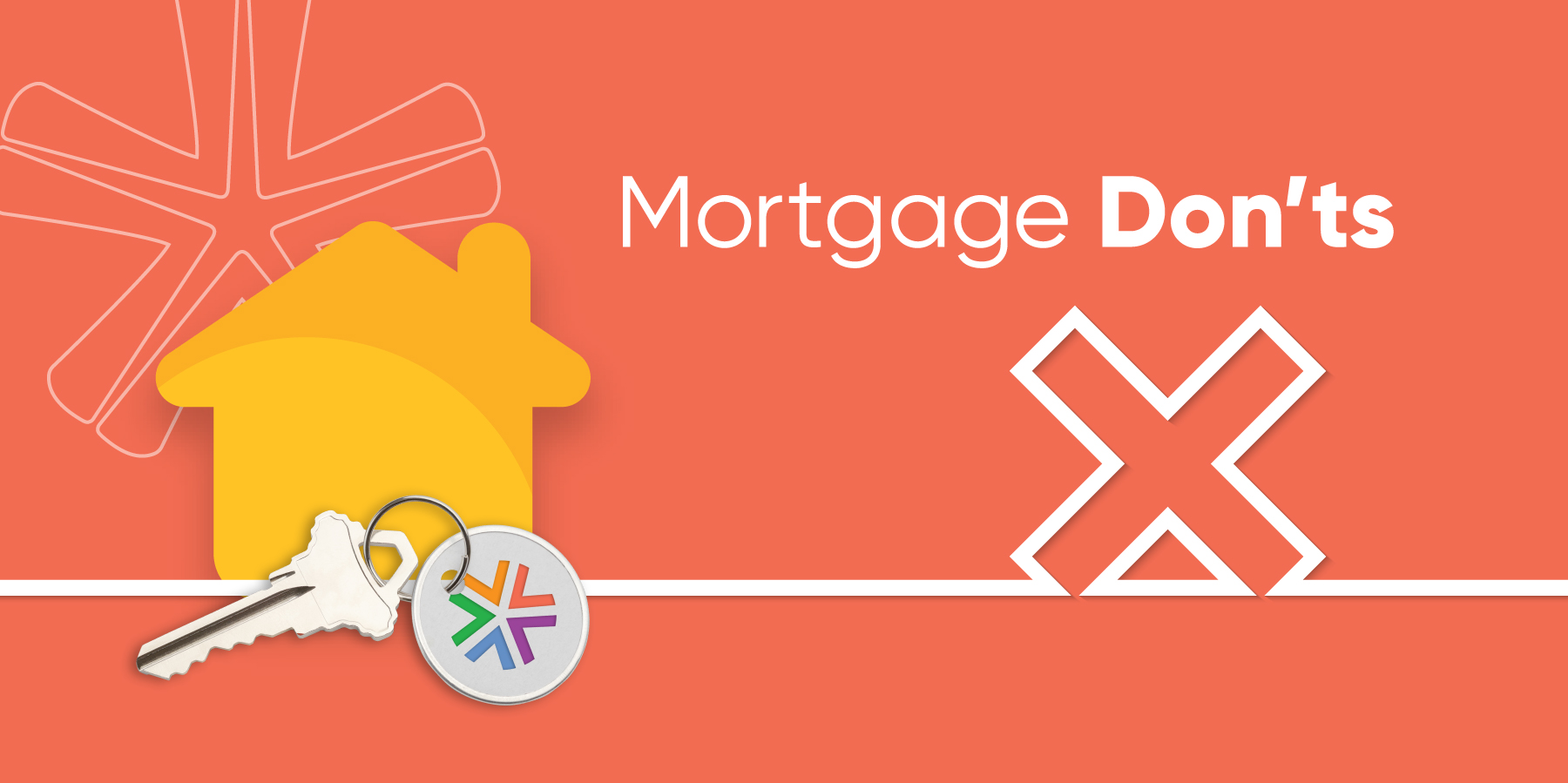Mortgage Do’s and Don’ts
Most people are unaware of the potential roadblocks they could come up against when applying for a mortgage — until it’s too late. This list of mortgage do’s and don’ts are designed to save you from mortgage application headaches.

Check your credit score in advance
Your credit score is an essential ingredient in the mortgage qualification recipe. If it’s low, many lenders won’t consider your application at all. Those that will consider your application are likely to charge a considerably higher interest rate. Knowing your credit score in advance will help you be fully aware of your options.

Unfortunately, credit report mistakes are far from rare and can badly damage your credit score. This can lead to you paying a higher interest rate or not qualifying at all. These mistakes can take several months to correct, so check your score early so they can be corrected before you apply.
Learn more about how credit scores are calculated here, and how you can build your rating with a credit card.
Pay down high instalment debt
A high monthly payment for a personal loan or expensive vehicle purchase can have a large, negative impact on your debt service ratios. That can impact the amount of money you can borrow.
If you have sufficient savings, paying off a loan could add tens of thousands of dollars to the mortgage amount you will qualify for.
In a similar vein, try and keep your credit card balances down to below 50% of their credit limit. Higher balances will have an adverse effect on your credit score.
Be transparent with the source of your down payment
Lenders want to see where your down payment came from and will want proof that it is from your own savings, your RRSPs or a gift. You will need to explain any large deposits, especially if they are cash.

File your taxes
Many mortgage lenders want to see proof that you’ve paid your income tax. Your Notices of Assessment are often used to validate your income and lenders also like to see that you’re not in debt to the government. If you haven’t filed your taxes, this could delay your application considerably.
Related: Mortgage tips for first-time homebuyers

Don’t quit your job
Try not to switch jobs just before you apply for a mortgage. If you’re in a probationary period (and this can last as long as three months with some employers) most lenders will want to wait until that’s finished before making you an offer.
Don’t apply for lots of credit cards or make new purchases on credit
Your credit score isn’t just a reflection of how you manage debt, it is also seen as an indicator of possible financial difficulties. If you apply for a bunch of credit cards in a short period of time, this will dent your credit score considerably.
Making a new purchase on credit will also affect your debt service ratios and could reduce the amount you are able to borrow.
Don’t lie on your application
This may sound like an obvious one, but you wouldn’t believe how many people tell “white lies” when applying for a mortgage. Mortgage underwriters are extremely skilled at uncovering the truth, so do yourself a favour and be honest.
Don’t buy a new vehicle
New vehicle payments will count against you on your debt service ratios. A monthly Mercedes payment can be the difference between your dream home and a fixer-upper. Unless your car is falling apart, try to stick with it until after your mortgage closes.
Don’t become self-employed
While being your own boss is many people’s dream, starting your own business just before applying for a mortgage is one of the worst things you can do. At the best of times, being self-employed can make getting a mortgage difficult. If you can’t provide proof of self-employed income for the last two tax years, most lenders won’t finance you.
Stick with your nine-to-five job until you close the mortgage.
Don’t bounce any cheques
This may sound obvious, but a history of bouncing cheques could result in a much higher interest rate or a flat refusal.
If you follow this advice, your mortgage application should be a smoother process. If you’re looking for more help or information on your mortgage application, speak with an ACU financial advisor who will be able to answer any of your questions.

6 mortgage tips for first-time homebuyers
Up Next
Celebrating the 10th anniversary of student-run credit union
Just over 10 years ago, a survey circulated at Winnipeg’s Technical Vocational High School. The results showed that students at the school, commonly known as Tec Voc, felt short-changed—they were…
Kilter Brewing Co. serves up craft beer and community connection in St. Boniface
Deep in the heart of St. Boniface, Kilter Brewing Company is a hidden treasure—an oasis for Winnipeggers to escape their day-to-day routines, enjoy craft beer and connect with their community….
How to use a mortgage calculator to budget better
Learn how to use ACU’s mortgage calculator to figure out how much mortgage you can afford, and what budget you should set before you start house hunting. A mortgage lender…




